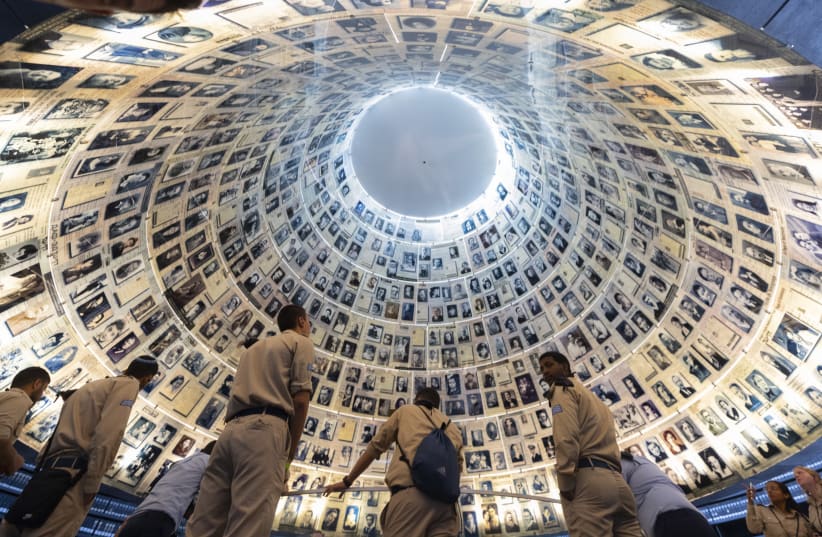Israel is today a polarized society, but special events like Holocaust Remembrance Day ease this division due to, in part, an increase in feelings of sadness and underscores the pivotal role of memorial days in temporarily reducing societal divisions and safeguarding cohesion.
These were the findings of a new study by researchers at the Hebrew University of Jerusalem (HU) led by doctoral student Tamar Gur and colleagues, under the guidance of psychology Prof. Eran Halperin. It delved into the emotional dynamics surrounding this day marked on Monday this year that detected a substantial decline in “affective polarization during the commemoration.”
They published their paper in the journal Political Psychology under the title “A group that grieves together stays together: Examining the impact of Holocaust Memorial Day in Israel on affective polarization.”
Affective polarization is defined as the tendency to dislike, distrust, and maintain hostile attitudes toward supporters of other political parties or ideologies. In its extreme form, affective polarization may pose a severe threat to these groups’ cohesion, functionality, and existence.
Relation between memorial days and unity
The association between memorial days and national unity has long been recognized. In poignant speeches delivered during these commemorations, there’s always a powerful call for unity, underscoring a common identity and shared commitment to the memory of a collective history. Against the backdrop of polarization that has beset Israel since January 2023 – characterized by growing divides among groups with identical national identities – the need to strengthen these bonds of common identity is vital, the researchers said.
Research has shown that the Jewish public is very involved in and moved by Holocaust Remembrance Day: In one survey, 93% of them reported standing at attention in honor of the fallen during the commemorative siren.
The study examined the effects of memorial days on emotional responses and their potential role in mitigating affective polarization. Affective polarization, defined as the tendency to harbor negative attitudes and hostility towards supporters of opposing political ideologies, poses a grave threat to societal cohesion and functionality.
The study was based on extensive surveys of participants, gauging their feelings and attitudes before, during, and after the day of remembrance. The results showed that the prevalent sadness associated with the day significantly decreases polarization of moods and feelings that often manifest as distrust or hostility towards those with differing political or ideological views.
“Out of the great crisis we grew, became stronger, and established a glorious country, and we should not take this for granted,” said Rosa Bloch, a speaker at a Holocaust Remembrance Day event three years ago. “As a woman who loves people, I will add and say that I call for unity of the nation. ‘Love your neighbor as yourself’ is a principle that should be with us every day, every hour, because our strength is in our unity.”
“Memorial days serve as a reminder of our shared humanity and collective responsibility towards preserving the memory of our past,” Gur commented. “Our findings underscore the pivotal role of sadness in temporarily reducing affective polarization and safeguarding societal cohesion.”
They said that despite its limitations, this research holds far-reaching implications. “Sadness, though often deemed an unpleasant emotion, offers substantial personal and group advantages in specific contexts. Memorial days exemplify how national groups can harness the power of sadness to bolster cohesion and preserve group integrity.”
This profound impact on societal cohesion underscores the importance of collective memory in healing national wounds and building a resilient community, the team concluded. “It highlights how remembrance and shared grief can serve as powerful catalysts for social solidarity, promoting a more harmonious coexistence among various social groups.”

